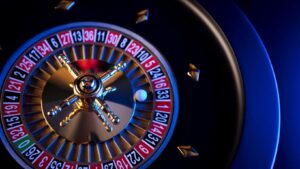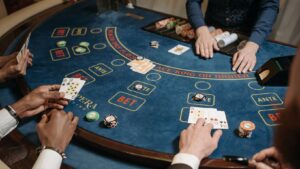Table of Contents
ToggleIn a world where mainstream beliefs often dominate the conversation, pagan religion books offer a refreshing twist that invites curiosity and exploration. These texts are more than just dusty tomes; they’re gateways to ancient wisdom, rituals, and a vibrant tapestry of beliefs that have stood the test of time. Whether one’s a seasoned practitioner or a curious newbie, there’s something here for everyone—think of it as the ultimate spiritual buffet where no one leaves hungry.
Imagine diving into the rich lore of nature worship, spellcraft, and the divine feminine, all while chuckling at the occasional witty quip. These books are packed with insights that could even make a grumpy cat crack a smile. So, if you’re ready to embark on a journey that’s equal parts enlightening and entertaining, grab a cozy blanket and prepare to be captivated by the enchanting world of pagan literature.
Overview Of Pagan Religion Books
Pagan religion books serve as windows into a rich tapestry of beliefs, traditions, and practices. These texts encapsulate ancient wisdom, presenting insights that resonate with contemporary seekers of spirituality. Readers find diverse topics ranging from nature worship to the intricacies of spellcraft.
Many of these publications appeal to experienced practitioners as well as those new to the path. Novices may discover creative rituals and accessible guidelines in many introductory guides. Experienced individuals can delve into complex philosophies and advanced practices, adding depth to their understanding.
Literature on paganism often features engaging narratives paired with humor, inviting exploration. Cultures from various regions and histories influence these writings, highlighting paganism’s global presence. Readers encounter tales of gods, goddesses, and mythical creatures that enrich their spiritual journeys.
Research shows that these texts promote not only knowledge but also community connection. Shared rituals and seasonal celebrations repeatedly emphasize the importance of nature and personal experience. Community workshops and online forums often recommend specific titles that resonate with collective interests.
Choosing the right pagan book involves considering personal beliefs and goals. Prospective readers benefit from tapping into reviews and recommendations to find texts that align with their spiritual quest. Ensuring these works complement individual paths cultivates a deeper, more meaningful relationship with the material.
Pagan religion books invite continual exploration and adaptation of traditions. Each text offers unique perspectives, encouraging readers to engage with themes relevant to their experiences and aspirations.
Types Of Pagan Religion Books

Pagan religion books encompass diverse categories, reflecting the rich mosaic of beliefs and practices. Key types include historical texts and modern interpretations, each offering unique insights.
Historical Texts
Historical texts serve as foundational resources for understanding ancient pagan traditions. These writings document rituals, beliefs, and practices from a time long past. Texts such as the Greek Magical Papyri reveal spellcraft and incantations used in daily life. Ancient mythology collections provide context for deities and myths. Often, these historical artifacts reveal insights into how ancient communities related to nature and the divine. By studying these works, readers gain appreciation for the cultural heritage behind modern practices.
Modern Interpretations
Modern interpretations of pagan spirituality bridge ancient wisdom with contemporary experiences. These works address themes like personal empowerment and ecological consciousness. Authors frequently blend traditional rituals with innovative practices, making spirituality accessible to a wider audience. Books like Wildwood Wisdom encourage readers to forge personal connections with nature. Engaging narratives often feature community rituals and practices, appealing to newcomers and seasoned practitioners alike. Readers exploring modern interpretations encounter fresh perspectives that resonate with today’s aspirations for connection and meaning.
Notable Authors In Pagan Literature
Various authors have significantly shaped pagan literature, providing invaluable insights into diverse practices and beliefs. Their unique contributions offer a wealth of knowledge for both novices and seasoned practitioners.
Contributions Of Each Author
Scott Cunningham made waves with accessible texts, emphasizing personal experience and nature connection. Starhawk contributed transformative works, blending feminist principles with pagan spirituality, encouraging empowerment and activism. Raymond Buckland is notable for revitalizing interest in traditional witchcraft through his comprehensive guides and practical approaches. D.J. Conway has popularized various aspects of Celtic wisdom, reflecting on mythology and nature. Each author brings distinct perspectives, enriching the overall tapestry of modern pagan literature.
Key Themes Explored
Nature reverence is a recurring theme across many pagan texts, illustrating the deep bond between practitioners and the earth. Ritual practices often emphasize personal empowerment, guiding individuals to explore their spiritual potential. Mythology serves as another pillar, intertwining stories of deities and legendary creatures with contemporary beliefs. Seasonal celebrations highlight the importance of cycles and their relevance to personal experiences. Each theme resonates uniquely with seekers, inviting deeper connections with both ancient traditions and modern spirituality.
How To Choose The Right Pagan Religion Book
Choosing the right pagan religion book requires thoughtful consideration of personal interests and goals. Finding texts that resonate with individual beliefs enhances the reading experience.
Consider Your Interests
Personal interests should guide selection. Readers fascinated by rituals may prefer books focusing on spellcraft and ceremonies. Concepts such as nature reverence and mythology attract those drawn to ancient stories. Modern interpretations addressing personal empowerment and ecological themes can appeal to contemporary seekers. Engaging narratives may spark deeper connections, offering diverse perspectives. Identifying specific topics or practices of interest helps narrow down options effectively.
Read Reviews And Summaries
Reading reviews and summaries provides valuable insights before making a choice. Various online platforms and bookstores feature customer comments and expert critiques. Familiarity with content can shape expectations and highlight key themes. Summaries, often found on publishers’ websites, summarize essential concepts, guiding decision-making. Recognizing whether a book aligns with personal spiritual quests enhances satisfaction with the final selection. Reviews and summaries act as tools to identify books that resonate with unique experiences and aspirations.
Pagan religion books offer a unique pathway for those seeking deeper spiritual connections. They blend ancient wisdom with modern insights creating a rich tapestry of knowledge that resonates with diverse audiences. By exploring these texts readers can uncover new perspectives on nature worship personal empowerment and the significance of seasonal celebrations.
Whether one is a seasoned practitioner or just starting out the right book can illuminate personal beliefs and enhance spiritual journeys. With so many engaging options available it’s easier than ever to find literature that aligns with individual aspirations. Embracing these resources encourages not only personal growth but also a sense of community among seekers of all backgrounds.




